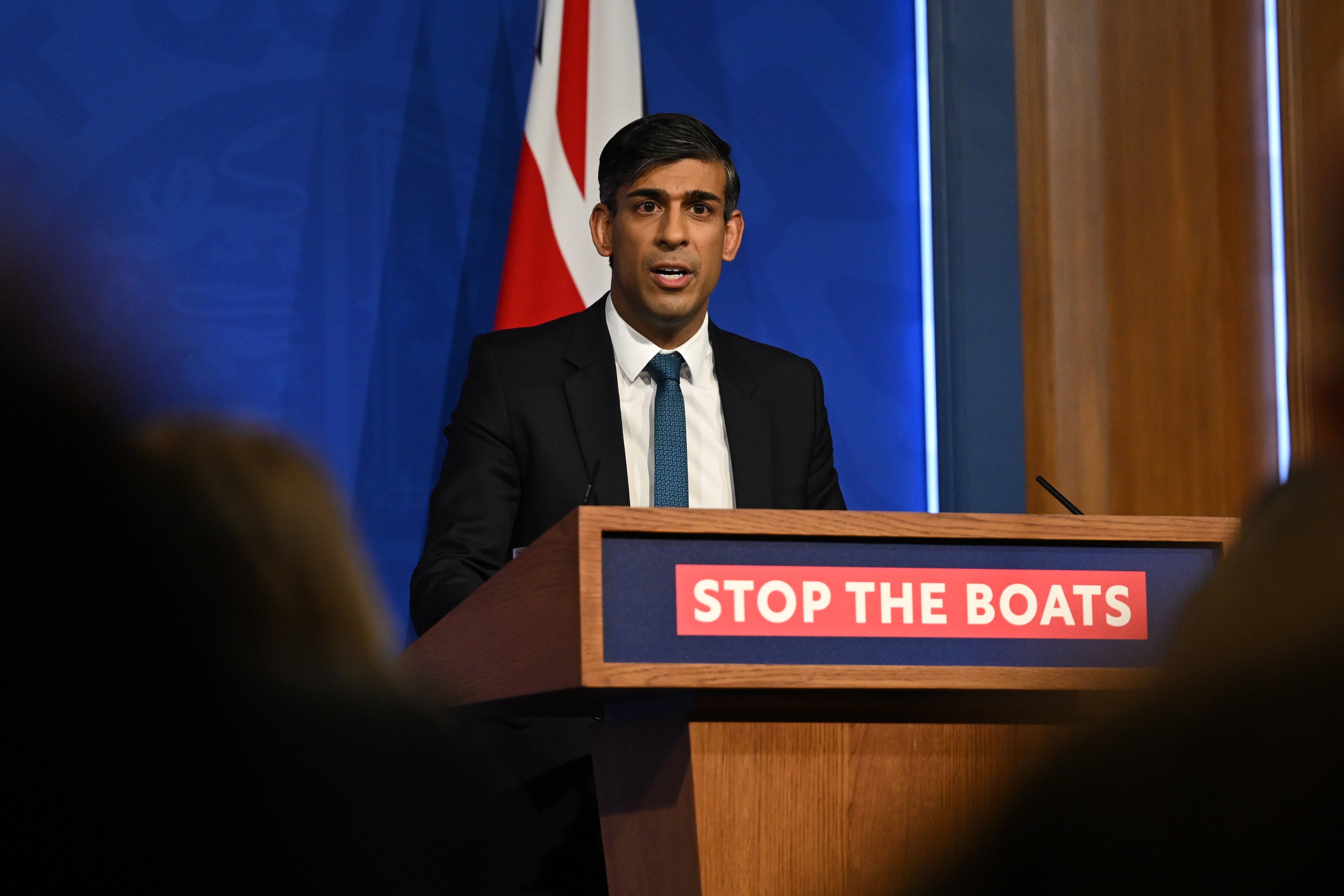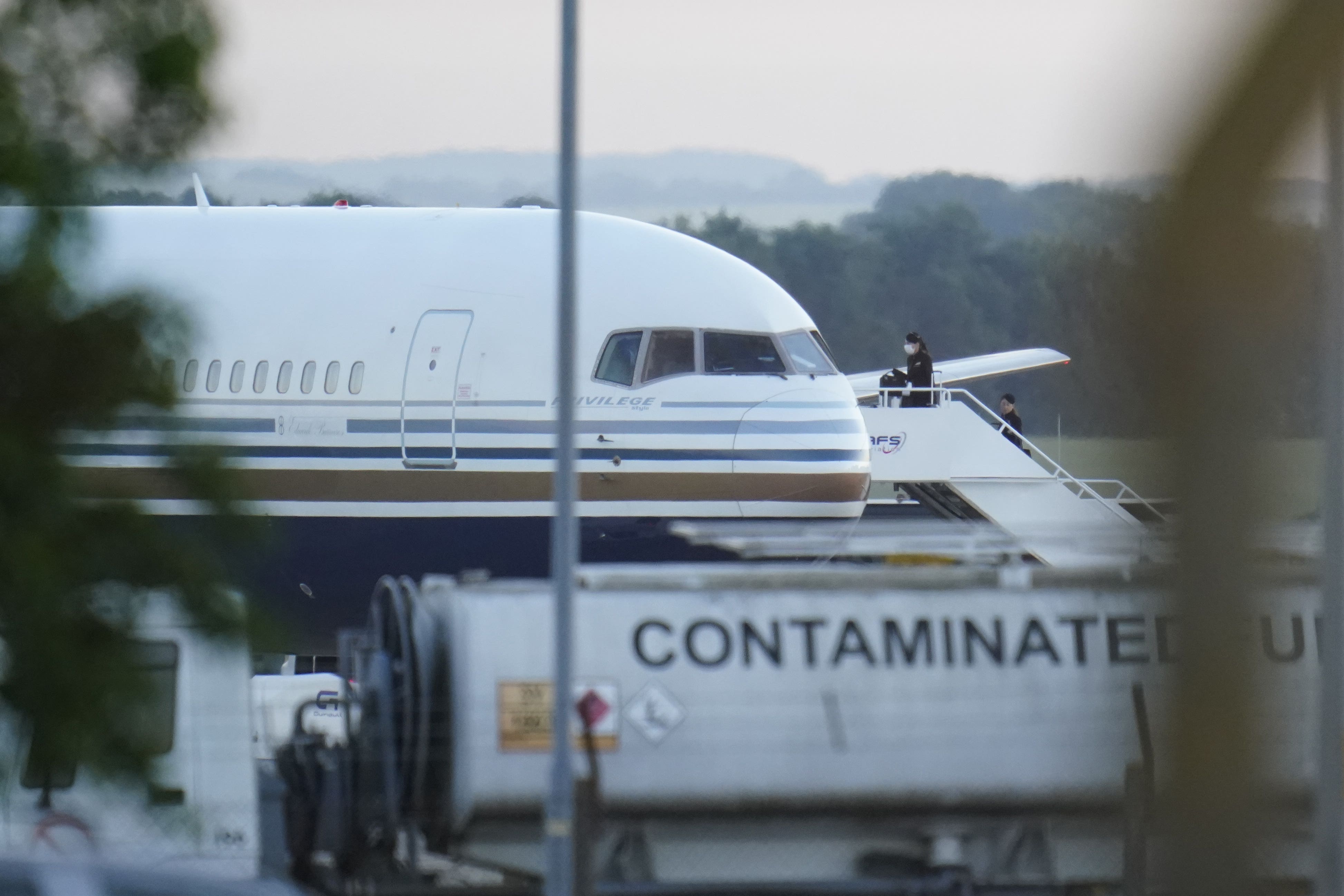Rwanda plan will force civil servants to break the law, court told
The FDA trade union is bringing legal action against the Cabinet Office over the civil service code and removals to Rwanda

Your support helps us to tell the story
From reproductive rights to climate change to Big Tech, The Independent is on the ground when the story is developing. Whether it's investigating the financials of Elon Musk's pro-Trump PAC or producing our latest documentary, 'The A Word', which shines a light on the American women fighting for reproductive rights, we know how important it is to parse out the facts from the messaging.
At such a critical moment in US history, we need reporters on the ground. Your donation allows us to keep sending journalists to speak to both sides of the story.
The Independent is trusted by Americans across the entire political spectrum. And unlike many other quality news outlets, we choose not to lock Americans out of our reporting and analysis with paywalls. We believe quality journalism should be available to everyone, paid for by those who can afford it.
Your support makes all the difference.Civil servants are required to comply with interim injunctions from Strasbourg preventing removals to Rwanda, even if ministers have decided to ignore the order, the High Court has heard.
The FDA trade union, which represents senior civil servants, is bringing legal action over the relationship of the Civil Service Code with the Government’s Safety of Rwanda Act.
On Thursday, the High Court heard the challenge brought against the Cabinet Office and Prime Minister Rishi Sunak, in his role as Minister for the Civil Service, over whether guidance issued in February is lawful.
The guidance says that if a minister decides to ignore a rule 39 indication from the European Court of Human Rights (ECHR) to stop a person’s removal to Rwanda, “it is the responsibility of civil servants under the civil service code to implement that decision”.
However, Tom Hickman KC, for the FDA, said that civil servants are required by the code to comply with measures from the ECHR, “and an instruction from a minister not to do so would override this obligation”.
A rule 39 indication from Strasbourg is an interim measure to prevent “imminent risk of irreparable harm”, with one such order contributing to the grounding in 2022 of the first flight going to carry asylum seekers to Rwanda.
Mr Hickman said that a failure to comply with such an interim measure “represents a clear violation of international law, just as a failure to comply with an interim injunction by a domestic court would constitute a clear violation of domestic law”.
He added in written submissions: “The obligations of civil servants under the civil service code require them to comply with international law and uphold the administration of justice.
“The consequence of that they are required by their terms of service to comply with interim measures of the Strasbourg court.”

The High Court in London was later told that the FDA was attempting to clarify the obligations of civil servants with the challenge, and Mr Hickman told the court the legal action was not intended to “frustrate” the Government’s policy of removing asylum seekers to Rwanda.
Sir James Eadie KC, for the Cabinet Office, Mr Sunak and the Home Office, said that the FDA’s case on the meaning of the civil service code is “constitutionally untenable”.
In written submissions, he said that decisions on whether to comply with “unincorporated international treaty obligations” are for ministers.
He continued: “Parliament evidently did not intend that, even if a minister decided to remove a person to Rwanda despite a rule 39 indication, that decision could be frustrated and undermined by civil servants deciding that they would not assist.”
Sir James later said it was not an option for civil servants to “take their own view on the lawfulness of the UK’s compliance” by refusing to implement a decision.
“A civil servant implementing a decision of a minister lawfully taken under domestic law… would be acting in compliance with the duty to comply with the law under the code, as reflected in the guidance,” he continued.
The court was later told by Sir James that under the Safety of Rwanda Act, “ministers are the relevant constitutional actors with the power and constitutional responsibility for such decisions”.
The hearing before Mr Justice Chamberlain will conclude on Thursday with a decision expected in writing at a later date.